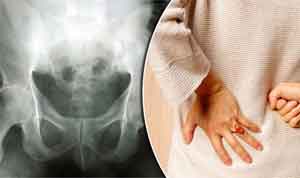- Home
- Editorial
- News
- Practice Guidelines
- Anesthesiology Guidelines
- Cancer Guidelines
- Cardiac Sciences Guidelines
- Critical Care Guidelines
- Dentistry Guidelines
- Dermatology Guidelines
- Diabetes and Endo Guidelines
- Diagnostics Guidelines
- ENT Guidelines
- Featured Practice Guidelines
- Gastroenterology Guidelines
- Geriatrics Guidelines
- Medicine Guidelines
- Nephrology Guidelines
- Neurosciences Guidelines
- Obs and Gynae Guidelines
- Ophthalmology Guidelines
- Orthopaedics Guidelines
- Paediatrics Guidelines
- Psychiatry Guidelines
- Pulmonology Guidelines
- Radiology Guidelines
- Surgery Guidelines
- Urology Guidelines
Women on drug holiday from bisphosphonates for more than two years have higher hip fracture risk

Women who took a drug holiday (temporary or permanent discontinuation of a medicine) from using bisphosphonates for more than two years have a significantly higher risk of a hip fracture compared to others who continued their treatment, according to new research findings presented this week at the 2017 ACR/ARHP Annual Meeting in San Diego.
Osteoporosis is a common condition that results from loss of bone mass, measured as bone density. People over 50 are at the greatest risk of developing osteoporosis and having bone fractures. Osteoporosis is most common among older women, especially non-Hispanic white and Asian women. Treatment with bisphosphonates, a class of anti-resorptive drugs, may slow bone loss and decrease fracture risk in osteoporosis patients.
Taking a drug holiday from bisphosphonates after years of continuous therapy is becoming more common due to FDA warnings about long-term risks. In a population-based, cohort study, researchers at the University of Alabama at Birmingham investigated the potential impact of stopping bisphosphonates on hip fracture risk among women who are long-term users of these therapies.
The researchers used Medicare data from 2006-2014 to identify 156,236 women who were long-term, adherent users of bisphosphonates, quantified as being at least 80 percent adherent for three or more years. Patients who used other bone therapies, such as denosumab, estrogen, teriparatide or calcitonin, were excluded or censored if they started these treatments after first taking bisphosphonates. The mean age of the women was 78.5 years. The most common bisphosphonates used by the women in the study were alendronate and zoledronic acid.
During a median follow-up period of 2.1 years, 40.1 percent of women stopped bisphosphonate therapy for at least six months or more. Among these women, 12.7 percent restarted a bisphosphonate later. Of all the women in the study, 10.8 percent died during the follow-up period due to various causes.
For the study, the researchers calculated crude rates of hip fracture for those continuing bisphosphonate therapy and those who took a drug holiday, and for the length of the drug holidays.
"Our goal was to evaluate the risk of discontinuing therapy based on the length of the holiday, controlling for any possibly confounding factors, such as race, median income, rural or urban location, DXA scores or comorbidities," said Jeffrey Curtis, MD, MS, MPH, William J. Koopman Endowed Professor in Rheumatology and Immunology at the University of Alabama at Birmingham, and a lead author of the study.
Results showed that a total of 3,745 hip fractures occurred during follow-up. Hip fracture rates were lowest among the women who continued bisphosphonates and gradually increased as the length of the drug holiday increased. Women who took a drug holiday of more than two years showed the highest rate of hip fractures and were associated with a significantly increased risk of hip fracture of up to 39 percent compared to continued bisphosphonates use.
"While the notion of a drug holiday has become commonplace in osteoporosis management, there's a dearth of evidence on when we should consider restarting bisphosphonate therapy," said Dr. Curtis. "The study's findings may provide useful evidence to help guide rheumatologists as they plan long-term therapy for their patients dealing with low bone mass."
This research was supported by funding from the NIH's National Institute of Arthritis and Musculoskeletal and Skin Diseases.

Disclaimer: This site is primarily intended for healthcare professionals. Any content/information on this website does not replace the advice of medical and/or health professionals and should not be construed as medical/diagnostic advice/endorsement or prescription. Use of this site is subject to our terms of use, privacy policy, advertisement policy. © 2020 Minerva Medical Treatment Pvt Ltd